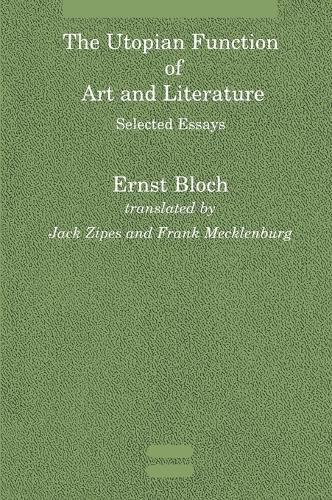Readings Newsletter
Become a Readings Member to make your shopping experience even easier.
Sign in or sign up for free!
You’re not far away from qualifying for FREE standard shipping within Australia
You’ve qualified for FREE standard shipping within Australia
The cart is loading…






The aesthetic essays of the philosopher Ernst Bloch (1885-1977) belong to the rich tradition of cultural criticism represented by Georg Lukacs, Theodor Adorno, and Walter Benjamin. Bloch was a significant creative source for these thinkers, and his impact is nowhere more evident than in writings on art. Bloch was fascinated with art as a reflection of both social realities and human dreams. Whether he is discussing architecture or detective novels, the theme that drives his work is always the same–the striving for something better, for a homeland that is more socially aware, more humane, more just. The book opens with an illuminating discussion between Bloch and Adorno on the meaning of utopia; then follow 12 essays written between 1930 and 1973 on topics as diverse as aesthetic theory, genres such as music, painting, theater, film, opera, poetry, and the novel, and perhaps most important, popular culture in the form of fairy tales, detective stories, and dime novels. The MIT Press has previously published Ernst Bloch’s Natural Law and Human Dignity and his magnum opus, The Principle of Hope. The Utopian Function of Art and Literature is included in the series Studies in Contemporary German Social Thought, edited by Thomas McCarthy.
$9.00 standard shipping within Australia
FREE standard shipping within Australia for orders over $100.00
Express & International shipping calculated at checkout
Stock availability can be subject to change without notice. We recommend calling the shop or contacting our online team to check availability of low stock items. Please see our Shopping Online page for more details.
The aesthetic essays of the philosopher Ernst Bloch (1885-1977) belong to the rich tradition of cultural criticism represented by Georg Lukacs, Theodor Adorno, and Walter Benjamin. Bloch was a significant creative source for these thinkers, and his impact is nowhere more evident than in writings on art. Bloch was fascinated with art as a reflection of both social realities and human dreams. Whether he is discussing architecture or detective novels, the theme that drives his work is always the same–the striving for something better, for a homeland that is more socially aware, more humane, more just. The book opens with an illuminating discussion between Bloch and Adorno on the meaning of utopia; then follow 12 essays written between 1930 and 1973 on topics as diverse as aesthetic theory, genres such as music, painting, theater, film, opera, poetry, and the novel, and perhaps most important, popular culture in the form of fairy tales, detective stories, and dime novels. The MIT Press has previously published Ernst Bloch’s Natural Law and Human Dignity and his magnum opus, The Principle of Hope. The Utopian Function of Art and Literature is included in the series Studies in Contemporary German Social Thought, edited by Thomas McCarthy.